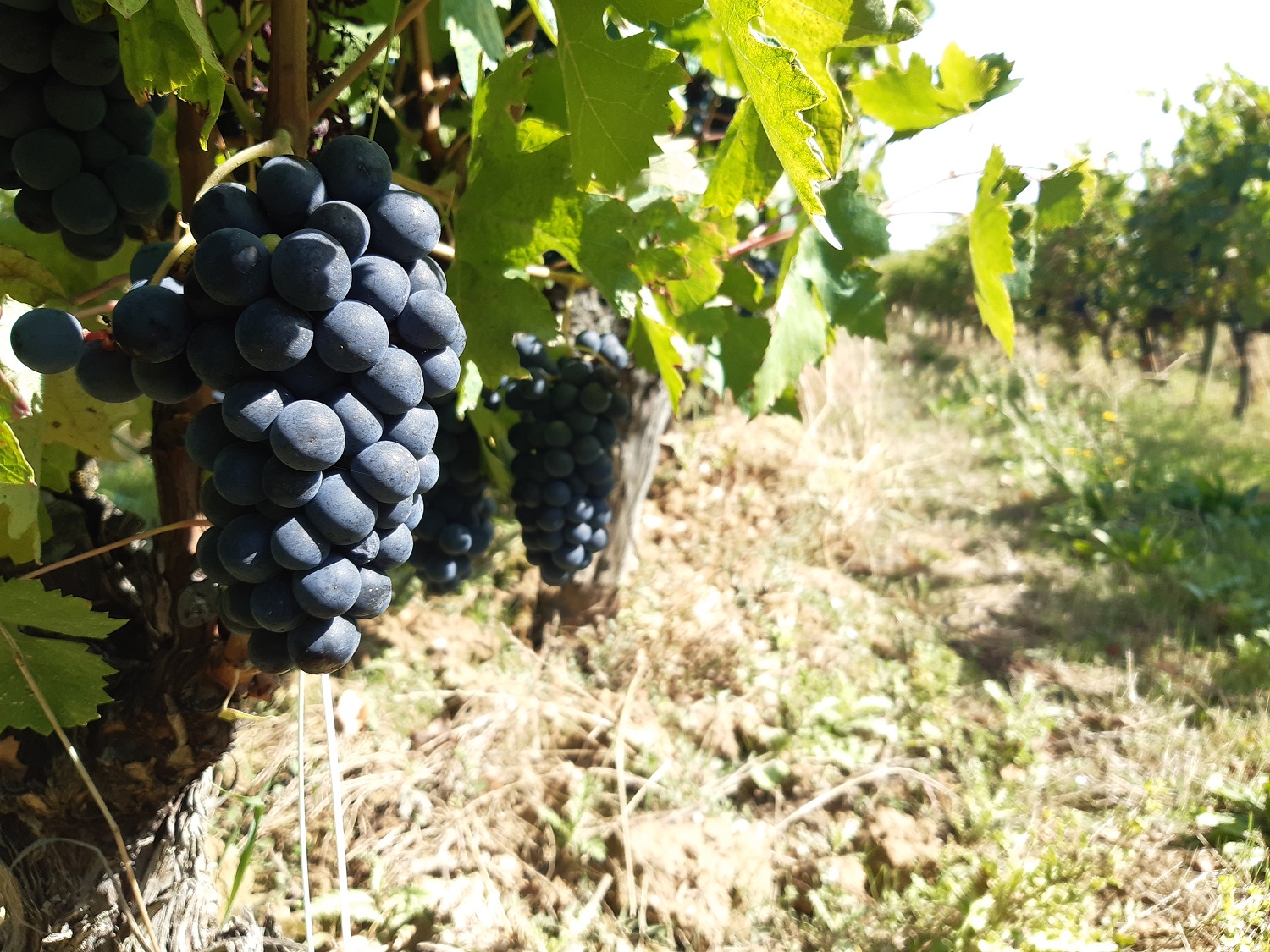NEW
We study vine biodiversity, fertilisation and the use of cover crops to maintain wine quality in the face of climate change
19 February 2021Wine grape biodiversity, fertilisation and the use of green roofs to be analysed by NEIKER as a solution to maintain wine quality in response to climate change
- This work is part of the VITISAD project coordinated by NEIKER; it aims to adapt to future weather conditions on vineyards in Southwestern Europe
- The influence of factors such as irrigation, cluster sun exposure and pruning date is also being analysed
Conserving the genetic biodiversity of wine grapes, fertilising and using green roofs are a few factors NEIKER is analysing within the framework of the VITISAD (Interreg-POCTEFA) project, aimed at maintaining wine quality in response to climate change and preventing the environmental risks that would cause those future weather conditions.
One of the consequences of climate change is temperature increase, which causes grapes to mature in hotter periods and may modify some of their qualitative properties such as colour and acidity. More bouts of heavy rain are also expected, which may entail greater risk of soil loss due to erosion. So, pre-empting these potential scenarios and having solutions adapted to these new conditions is paramount. Different agronomic techniques, like those proposed for assessment by this project, can be used to ensure the vineyard can adapt to these new circumstances as well as maintain grape quality.
The project has an expected duration of 32 months and is comprised of five partners dedicated to Southwestern European wine research: NEIKER, the coordinator, the Directorate General of Agriculture and Livestock Farming of the Government of la Rioja, the Directorate General of Rural Development of the Government of Navarre, the Chamber of Agriculture of the Atlantic Pyrenees and the IFV (French Institute of Vine and Wine). This cross-border cooperation is based on experimentation, joint assessment and exchanging experiences on five practices corresponding to different climate change adaptation strategies for the vineyards of Southwestern Europe.
The partners on the project are analysing the use of green roofs as a soil maintenance system to combat erosion, improve soil quality and balance the plant and production components of the vine. Water-use efficiency practices are already under way using a number of techniques (drip, subsurface drip and surface irrigation) as well as combining these techniques with the use of green roofs.
Another of the studies relates to reducing pruning temperatures and monitoring maturation with topographic studies of the plots and installing nets to shade the vines. Organic fertilisers are also being experimented with to increase carbon and nutrient storage in the soil.
VITISAD is also analysing and classifying the genetic variability of vineyards, including old, resistant and late-flowering vines, the diversity of clones, rootstocks, etc., with special emphasis on materials that will adapt to climate change.
Training and support for wine-growers and wineries
The project also includes training and support on using and adopting these practices for wine-growers and wineries. Pilot groups will be comprised of a network of 20 wine-growers and winegrowing specialists from wineries that have decided to modify their growing practices based on the practices used in the project so as to gain an understanding of the industry’s concerns and share the results obtained.
There are now 30 pilot plots in commercial vineyards in France and Spain applying techniques such as green roofs with different grasses and legumes located both on the seeding row and on the road; demonstrations of different pruning dates and their influence on the vine’s life cycle; reduced usage of agricultural machinery and estimated energy and financial savings; conservation of old vineyards and multiplication of plant material of interest with massal and sanitary selection.
The results from the project are expected to be shared with unions, professional associations and regional governments to help them establish their future strategies and management policies in response to climate change. In fact, in 2020, nearly 100 wines were produced using these practices.
Interreg-POCTEFA programme
Infused with 657,587 euros, the VITISAD project was 65% co-funded by the European Regional Development Fund (ERDF) via the Interreg V-A Spain-France-Andorra (POCTEFA 2014-2020) Programme. POCTEFA’s goal is to bolster economic and social cooperation along the Spain-France-Andorra border. Its aid is focussed on carrying out transnational economic, social and environmental activity via joint strategies favouring sustainable regional development.



